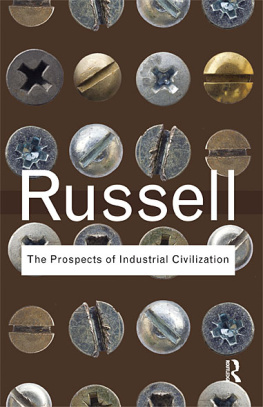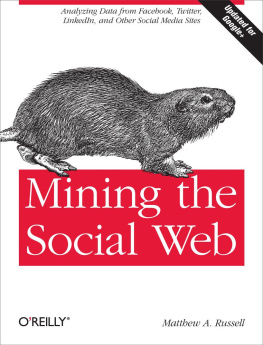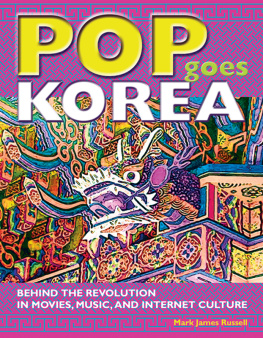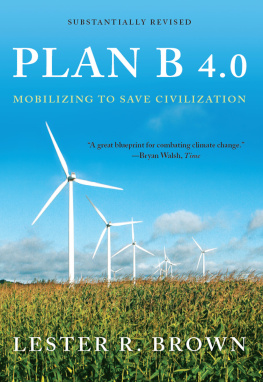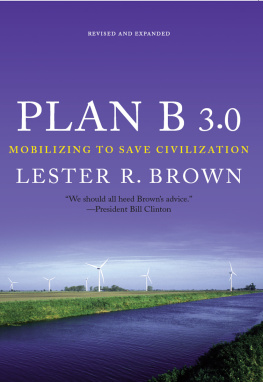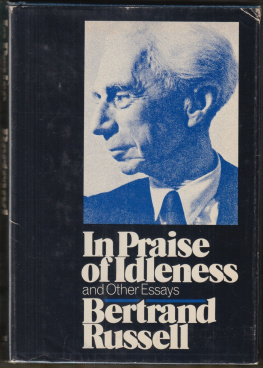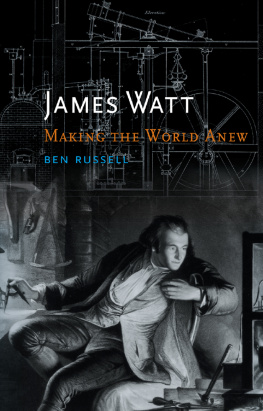Russell - The Prospects of Industrial Civilization
Here you can read online Russell - The Prospects of Industrial Civilization full text of the book (entire story) in english for free. Download pdf and epub, get meaning, cover and reviews about this ebook. year: 2009, publisher: Taylor & Francis, genre: Science. Description of the work, (preface) as well as reviews are available. Best literature library LitArk.com created for fans of good reading and offers a wide selection of genres:
Romance novel
Science fiction
Adventure
Detective
Science
History
Home and family
Prose
Art
Politics
Computer
Non-fiction
Religion
Business
Children
Humor
Choose a favorite category and find really read worthwhile books. Enjoy immersion in the world of imagination, feel the emotions of the characters or learn something new for yourself, make an fascinating discovery.
The Prospects of Industrial Civilization: summary, description and annotation
We offer to read an annotation, description, summary or preface (depends on what the author of the book "The Prospects of Industrial Civilization" wrote himself). If you haven't found the necessary information about the book — write in the comments, we will try to find it.
The Prospects of Industrial Civilization — read online for free the complete book (whole text) full work
Below is the text of the book, divided by pages. System saving the place of the last page read, allows you to conveniently read the book "The Prospects of Industrial Civilization" online for free, without having to search again every time where you left off. Put a bookmark, and you can go to the page where you finished reading at any time.
Font size:
Interval:
Bookmark:
The Prospects of Industrial Civilization
The best course is to give him up as hopeless and read everything he writes
Saturday Review
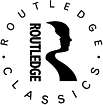
Routledge Classics contains the very best of Routledge publishing over the past century or so, books that have, by popular consent, become established as classics in their field. Drawing on a fantastic heritage of innovative writing published by Routledge and its associated imprints, this series makes available in attractive, affordable form some of the most important works of modern times.
For a complete list of titles visit
www.routledge.com/classics
Bertrand Russell

London and New York
This edition first published in 1959
by George Allen & Unwin Ltd.
First published in the Routledge Classics in 2010
by Routledge
2 Park Square, Milton Park, Abingdon, Oxon OX14 4RN
Simultaneously published in the USA and Canada
by Routledge
270 Madison Ave, New York, NY 10016
Routledge is an imprint of the Taylor & Francis Group, an informa business
This edition published in the Taylor & Francis e-Library, 2009.
To purchase your own copy of this or any of Taylor & Francis or Routledges collection of thousands of eBooks please go to www.eBookstore.tandf.co.uk.
2010 The Bertrand Russell Peace Foundation Ltd
Introduction 1996 Louis Greenspan
All rights reserved. No part of this book may be reprinted or reproduced or utilised in any form or by any electronic, mechanical, or other means, now known or hereafter invented, including photocopying and recording, or in any information storage or retrieval system, without permission in writing from the publishers.
British Library Cataloguing in Publication Data
A catalogue record for this book is available from the British Library
Library of Congress Cataloging in Publication Data
A catalog record for this book has been requested
ISBN13: 978-1-135-21057-1 ePub ISBN
ISBN 10: 0415487366
ISBN 10: 0203864719 (ebk)
ISBN 13: 9780415487368
ISBN 13: 9780203864715 (ebk)
First published in 1923, this study of the effects of industrialism on human destiny may perhaps claim to be one of the pioneer works on a subject which increasingly occupies the attention of those concerned with the social sciences.
Though some of the examples cited to support the conclusions drawn belong to the period in which the book was written, the trends which they illustrate are even more apparent today than they were thirty years ago.
Events have confirmed some of the forecasts made by the writers as to the inter-action of industrialism and nationalism, the spread of socialist industrialism in undeveloped countries, and the tendencies inherent in an industrial society itself.
The conflict between capitalist and socialist direction of industry, formerly regarded as an internal struggle within each nation, and now relegated to the background by many politicians in the highly industrialized nations, has in fact assumed tremendous and dangerous importance in the international sphere, in that the world now stands divided between the communist block and the block of nations still committed in greater or lesser degree to the methods of free enterprise.
Especially relevant to present-day problems is the books contention that industrial organisation, by its very nature, gives rise to oligarchy or dictatorship, thus tending to destroy democracy as traditionally understood, and to impose upon the individual pressures and restraints that prevent his full life as a human being, thus leading to trivial pursuits and passivity combined with collective rage and hysteria.
The full picture of this development was seen in Germany under Hitler; varying aspects of it are also apparent in other industrialised nations.
Men and women cannot live every moment of their lives at the rational and disciplined level required in modern industrial societies. Psychiatry has revealed the wider and deeper aspects of human personality which seek expression in human relations, through the free adventuring of the imagination in the arts and sciences, the creative use of the senses. An interesting development of this theme can be found in Lewis Mumfords The Transformations of Man (1957).
The ultimate concentration of industrial power in the H-bomb and the nuclear pile places squarely on the shoulders of the present generation the responsibility of answering the question posed in this book: what are the Prospects of Industrial Civilization?
D.R.
1959
The notion of writing this book arose out of two separate experiences of Bolshevik Russia in the summer of 1920, when communism was still strong and uncompromising; and of a mutual journey to China undertaken immediately after the Russian experience. Bolshevik Russia has never failed to produce a violent reaction in the spectator, either of enthusiasm or of hatred. The authors of this book, after independent observation, for they never met in Russia, were fortunate in that the fury led them in completely opposite directions, the one recoiling in disappointment, the other expanding in the delight of fresh hope and knowledge. To examine these two curiously opposite conclusions, both vehemently held, was the occupation of the six weeks journey to the East, and of the months of quiet which the gentle atmosphere of China afforded. As discussion became less inflammable, it began to appear that the chief basis for dislike was the growth of a new synthesis or orthodoxy, that sought to impose itselfin the case of the Westerneron minds accustomed to a tradition of freedom in speech and action, andin the case of the Russianon characters nurtured, it is true, in a tyrannous orthodoxy, but one which was human and divine, irregular, without the clockwork discipline of the new industrial faith. Delight and enthusiasm, on the other hand, had been caused by the sight of the bare bones of modern existence, the skeleton of the philosophy underlying industrial life. The Bolshevik synthesis, though crude, suggested, by its abandonment of all traditional beliefs, the prospect of a new harmony between thought and daily life. Here in Russia, it seemed, as nowhere else in the world, existed the conception of a modern civilization.
We concluded, as some writers in Germany and Czecho-Slovakia have also concluded, that the important fact of the present time is not the struggle between capitalism and socialism, but the struggle between industrial civilization and humanity. A new economic mode of existence brings with it new views of life which must be analysed and subdued if they are not to dominate to the exclusion of human values. Thus in the past, it has been necessary to destroy a superstitious reverence for agriculture, which dominated before it was made to serve the needs of human beings. Many prejudices still held by modern people are nothing but remnants of the agricultural, or even of the hunting, stage of mans development. We came to believe that the important differences in the modern world are those which divide nations living by industrialism from those which still live by the more primitive methods, though these are being rapidly abandoned, and industrialism is spreading all over the globe. This view was reinforced by the spectacle of a non-industrial country such as China. It was helped also by the extreme similarity between the Bolshevik commissary and the American Trust magnate; both appeared as persons imbued with the importance of mechanism for its own sake, and of their own position as holders of the key to the clockwork.
Font size:
Interval:
Bookmark:
Similar books «The Prospects of Industrial Civilization»
Look at similar books to The Prospects of Industrial Civilization. We have selected literature similar in name and meaning in the hope of providing readers with more options to find new, interesting, not yet read works.
Discussion, reviews of the book The Prospects of Industrial Civilization and just readers' own opinions. Leave your comments, write what you think about the work, its meaning or the main characters. Specify what exactly you liked and what you didn't like, and why you think so.

